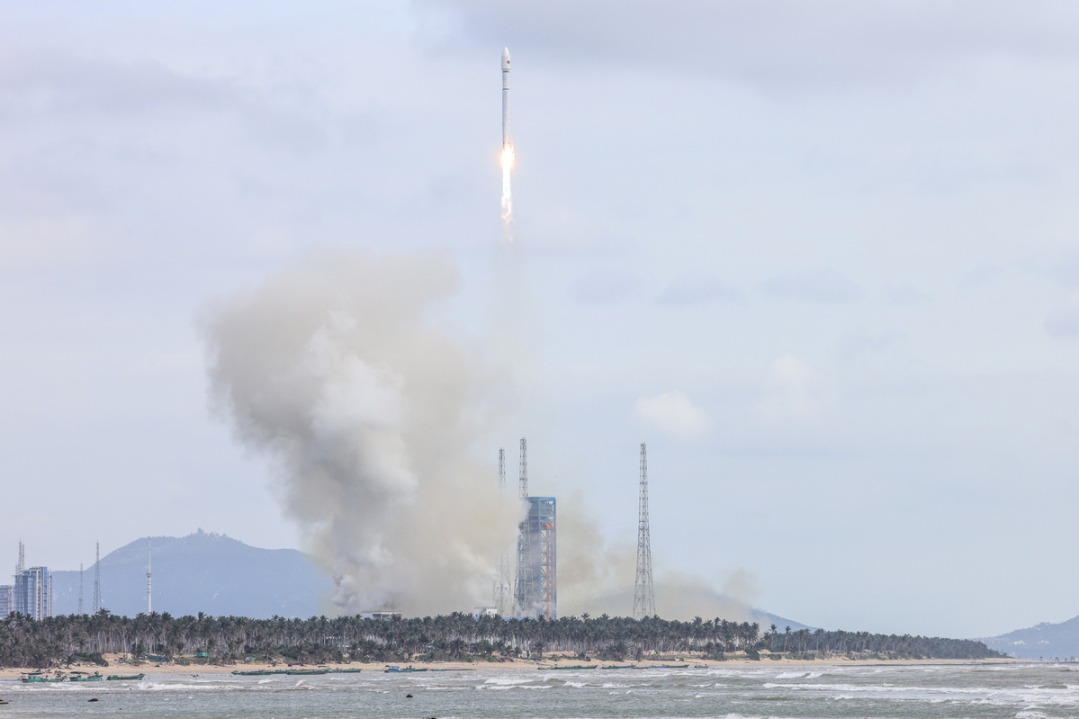Nation's research productivity soars

China continues to lead the world in the number of science and technology papers published in top journals across disciplines, as well as in international high-level journals and their citation counts, demonstrating the country's growing scientific productivity and prestige, said an annual report published recently.
The report, published by the Institute of Scientific and Technical Information of China, which is affiliated with the Ministry of Science and Technology, indicates that the country published more than 15,000 papers in 163 high-impact journals across 178 disciplines last year. This constituted 35.2 percent of the global total, maintaining the nation's position as the world leader, as it did in 2023.
China also held its top position in both the number and citation counts of papers published in 377 top international scientific journals last year, with 154,860 papers, accounting for 39.2 percent of the total, the report said, adding that these papers received more than 1 million citations.
According to the institute, the annually published report aims at monitoring research trends, assessing China's research capabilities, and supporting decision-making of scientific research amid the evolving landscape of open science and global technological competition.
Over the past decade, China has led the world in citation counts across nine scientific fields — materials science, engineering technology, chemistry, environmental and ecological sciences, physics, computer science, agricultural sciences, pharmacology and toxicology, and mathematics. Additionally, the average citation count of Chinese international papers, at 17.24, has surpassed the global average for the second consecutive year.
Zhang Mingming, a researcher at the Institute of Modern Physics of the Chinese Academy of Sciences, highlighted China's emphasis on and achievements in fundamental research, attributing the success to advanced research facilities, efficient experimental methods and the concerted efforts of researchers.
"Our institute has synthesized more than 40 new nuclides, enabling China to become the country with the highest number of newly discovered nuclides in the neutron-deficient light actinide region in recent years, laying a solid experimental foundation for research on the synthesis of new elements," Zhang said, adding that most of their papers have been published in top international journals and received high citation counts.
In addition, as of August, China had published 2,342 hot papers — studies published in the past two years that have been widely cited — representing an increase of 4.6 percent compared to last year's data and accounting for more than half of the global total. The United States ranked second with 1,511 hot papers, the report said.
For highly cited papers published in the past 10 years with citation counts within the world's top 1 percent, China ranked second in number but has seen a narrower gap with the first-ranked US.
The report showed that China published 76,271 highly cited papers, accounting for 37.4 percent of the global total and marking a year-on-year increase of 3.6 percentage points, with a shortfall of only 11 papers compared to the US.
Last year, China demonstrated significant progress in high-quality open collaboration in the academic field. One-fifth of its international papers were co-authored with international peers, and in about 75 percent of these collaborations, Chinese scientists were the first authors.
China's academic partnerships spanned 169 countries and regions, with the top six most prolific collaborators being the US, the United Kingdom, Australia, Canada, Germany and Singapore.
Scientific international cooperation yielded fruitful results for China, with nearly one-third of its highly cited papers published last year being co-authored with international peers.
Luo Wugan, a professor at the University of Chinese Academy of Sciences, said that many high-level international papers in archaeology are internationally coauthored.
"Through collaborating with world-class scientific research teams, we can not only broaden our research perspectives and enhance our proficiency in academic language but also deeply imbue ourselves with a scientific spirit and refine our research methodologies," he added.
limenghan@chinadaily.com.cn
- Nation's research productivity soars
- Grassroots workers welcome rural prosperity goal
- 161 nominations for Hong Kong LegCo election deemed valid
- Decks cleared for launch of ZQ 3 rocket
- Prosecutors target crimes related to food safety
- China's 15th five-year plan sends out positive signal: envoys in China






































